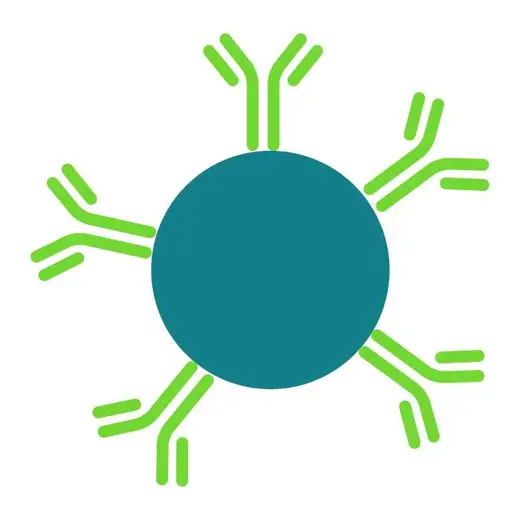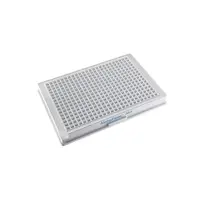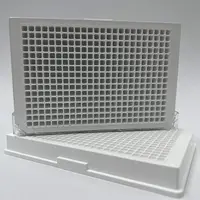
AlphaScreen Anti-FLAG Donor Beads, 5 mg






Alpha Donor beads conjugated to anti-FLAG antibody. This bead can be used to capture FLAG-tagged proteins for Alpha no-wash protein-protein interaction assays and other applications.
For research use only. Not for use in diagnostic procedures. All products to be used in accordance with applicable laws and regulations including without limitation, consumption & disposal requirements under European REACH regulations (EC 1907/2006).
Product information
Overview
Alpha Donor beads conjugated to anti-FLAG antibody. The mouse monoclonal antibody M2 clone recognizes the FLAG sequence at the N-terminus, Met N-terminus, C-terminus, and internal sites. These beads can be used to capture FLAG-tagged antibodies, proteins and peptides, and can be used in conjunction with AlphaScreen, AlphaLISA, or AlphaPlex Acceptor beads to create no-wash assays for:
- Analyte detection assays
- Protein-protein interaction assays
- Protein-DNA interaction assays
- Protein-RNA interaction assays
- Protein-small molecule interaction assays
- Protein detection assays
- Enzymatic assays
In a typical Alpha assay, 1 mg of Donor beads is sufficient to run 1,000-2,000 wells using a 25 µL reaction volume. Bead concentration can be adjusted for optimal performance.
Specifications
| Antibody Conjugates |
Anti-FLAG
|
|---|---|
| Application |
Protein-protein interactions
|
| Automation Compatible |
Yes
|
| Bead Type or Material |
Alpha Donor
|
| Brand |
AlphaLISA
|
| Detection Method |
Alpha
|
| Experimental Type |
In vitro
|
| Format |
Microplates
|
| One Unit Contains |
5.0 mg
|
| Shipping Conditions |
Shipped in Blue Ice
|
| Unit Size |
5 mg
|
Video gallery


Resources
Alpha has been used to study a wide variety of interactions, including protein:protein, protein:peptide, protein:DNA, protein:RNA...


How can we help you?
We are here to answer your questions.

































